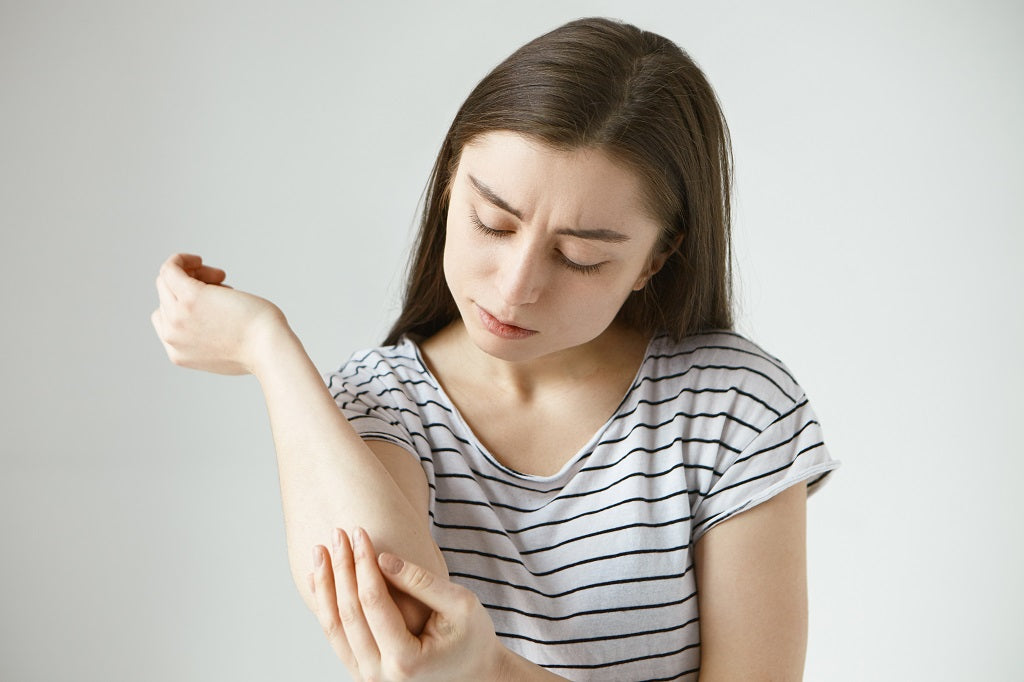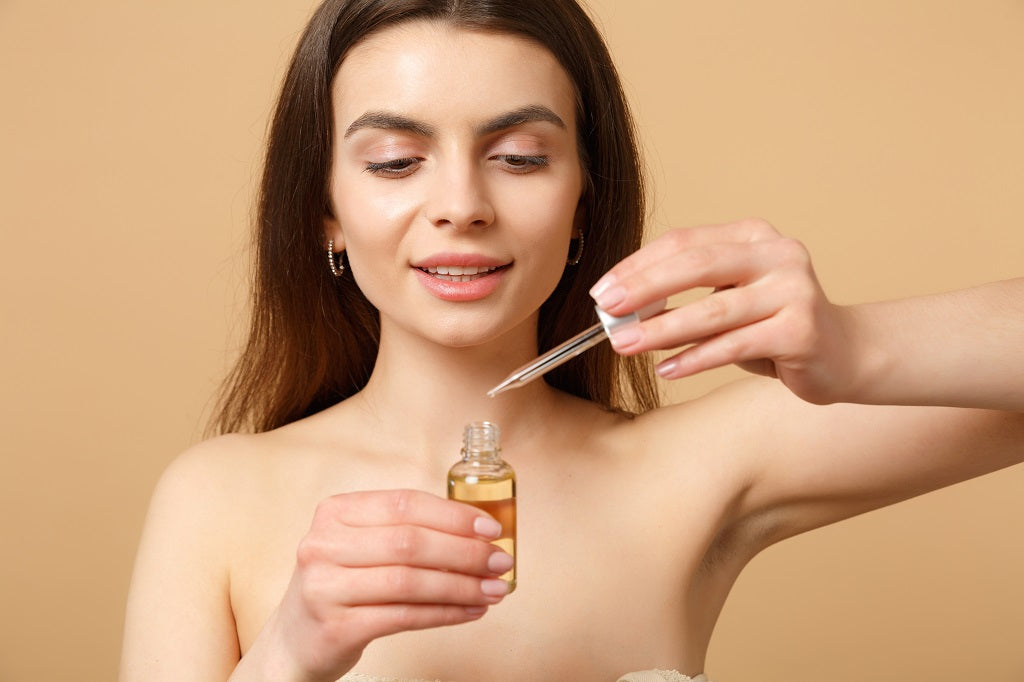Summer boils can be an absolute nuisance. They are painful and can cause a lot of irritation. This summer, you can keep the boils at bay, with these DIY solutions.
Summer Boils & Its Causes
Boils can develop on any part, but they are most commonly found on the forehead, armpits, buttocks, groin, and chest. It is due to a bacterial skin infection also known as a furuncle. It forms in the hair follicles as well as oil glands. Boils appear as red, painful bumps that eventually turn into pus-filled pustules.
Excessive sweating results in itchy and irritated skin. A boil is a skin growth that generally occurs due to sweat, constant friction on the skin, and infected hair follicles. Boils can also erupt due to an allergic reaction on the skin or because of the heat generated in the body due to some food.
Fret not, as there are many home remedies for boils. Tea tree oil is considered to be the most effective remedy for boils as it is gifted with therapeutic properties which makes it an effective beauty ingredient. As an antibacterial and anti-inflammatory agent, tea tree oil is beneficial for bacterial infections and provides relief from itchy skin.
How To Use Tea Tree Oil For Boils?
If you want to get rid of painful boils, then you can consider applying tea tree oil to them. Tea tree oil exhibits anti-fungal properties due to which it is beneficial in treating a lot of skin concerns. Tea tree oil is a natural remedy for boils as its antiseptic and anti-bacterial properties play a vital role in providing relief from those pesky, painful skin eruptions. Take a look at some effective home remedies for boils using tea tree oil.
Also Read : Tea Tree Oil For Healing Boils
ANVEYA AUSTRALIAN TEA TREE OIL, 100% PURE, 15ML

- Works on ACNE, SCARS & PIGMENTATION due to its antibacterial and anti-inflammatory properties
- Application in treating SKIN, NAIL & TOE INFECTIONS
- Great for HAIR. Fights against DANDRUFF with its antifungal properties
- Diffuse for fresh & CLEAN HOME
Method 1- Tea Tree Oil With Coconut Oil For Boils On Scalp
Mix a few drops of tea tree oil with a carrier oil such as coconut or almond oil. Apply it to your scalp. Leave it overnight and wash it off in the morning with a medicated shampoo. Repeat this daily for 1 week and then every alternate day on the consecutive week. Continue with this process until the boils are completely healed.
Method 2- Tea Tree Oil And Grapeseed Oil For Boils on Inner Thighs
Grapeseed oil has antimicrobial properties and being lightweight it gets absorbed into the skin easily. It has a soothing effect on the itchy and irritated skin. Grapeseed oil penetrates deeper into the pores of the skin and accelerates the healing process. Wash the infected area with warm water and pat dry. Add 1-2 drops of tea tree oil to 6-8 drops of grapeseed oil and mix well. With the help of a cotton ball apply this mixture to the infected area. Secure it with a bandage to let the essential oil get absorbed into the skin. Do this twice a day.
Method 3- Tea Tree Oil With Lavender Oil on Buttocks
Tea tree oil along with lavender oil can be effectively used for treating boils on the buttocks. Take warm water, and add a few drops of lavender oil and tea tree oil to it. Using a washcloth clean the affected area and place the cotton swab dipped in the solution on the boils, leave it for 15-20 minutes. Repeat it 2-3 times a day.
Method 4- Antiseptic Cream With Tea Tree Oil For Boils On Pubic Area
If you have boils on the pubic area then cleanse the area with a medicated soap and apply an antiseptic cream that contains the tea tree oil. Apply it with a clean piece of cotton. While applying make sure you do not rub the affected area or else it can irritate the skin.
Method 5- Tea Tree Oil And Manuka Honey For Boils On Neck, Chest, And Armpit
Manuka honey is well known for its anti-inflammatory property. It has a soothing effect on your skin. The healing property of manuka honey along with tea tree oil helps to reduce inflammation and pain caused by boils and accelerates the healing process.
How Fast Does Tea Tree Oil Work On Boils?
It usually takes 10-15 days for the boil to dry and heal completely. If the home remedies for boils prove futile and your condition is not improving even after 15-20 days and if you are experiencing lethargy or fever then you need to consult a doctor immediately.
Why Do We Get Boils?
Poor immunity can be one of the main reasons for the frequent appearance of boils on your skin. If you have poor immunity, consider boosting your immunity by including food rich in zinc in your diet. Apart from zinc, including food rich in antioxidants such as Vitamin A, C, and E are also beneficial for improving your immune system.
How To Get Rid Of A Boil Fast?
Apart from using tea tree oil for the boil, you can try the warm compress method to accelerate the healing process. Take a muslin cloth and soak in warm water and gently press it against the boil. This can be repeated several times throughout the day. You can use a heating pad also to drain the boil.
What Can Be Done To Prevent Boils?
Although there's no method of preventing the appearance of boils, you may lower the chance of developing one by following these healthy skin care habits.
- Make sure that your skin is fresh and clean.
- If you're susceptible to boils, then you should use an antibacterial cleanser on your skin. Look for natural anti-bacterial agents such as neem, tea tree oil, lavender oil, and lemon oil in your facial cleanser.
- Make sure to wash your hands regularly.
- Cover open wounds and keep them clean.
- Avoid sharing towels, makeup, and razors with others.
- Avoid pricking the boil as it can further aggravate the situation.
Also Read : 8 Benefits Of Tea Tree Oil
Disclaimer: All the content on anveya.com/blogs is solely for information. It is not intended to be a substitute for professional medical advice, diagnosis or treatment. Always seek the advice of your physician or a qualified health care provider. The information, suggestion or remedies mentioned on this site are provided without warranty of any kind, whether express or implied.



